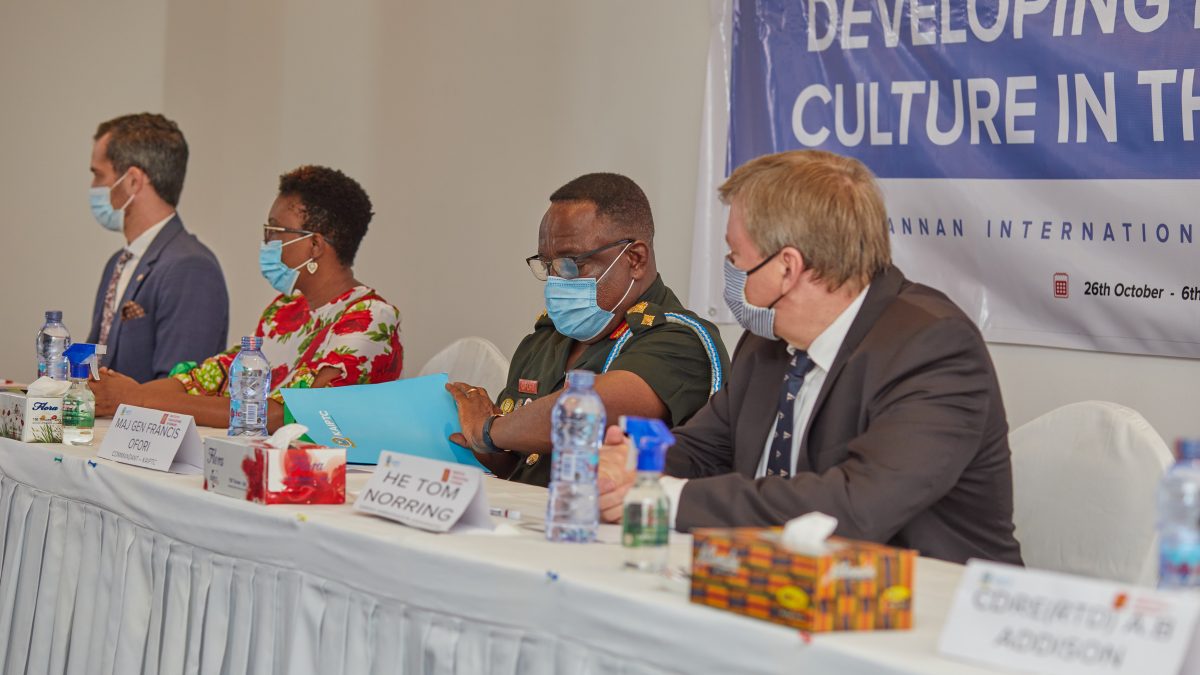
26th October to 6th November, 2020.Takoradi, Ghana
One of the objectives of the Government of Denmark’s project on “Enhancing Regional Research, Capacity Building and Convening of Stakeholders towards a Safer Maritime Domain in the Gulf of Guinea” is to develop and implement capacity building training courses aimed at enhancing the professional competencies of maritime security actors both at the regional and national levels. In line with this, the Kofi Annan International Peacekeeping Training Centre (KAIPTC) as an implementing partner organised the Pilot Course on Developing Maritime Security Culture in the Gulf of Guinea from 26th October to 6th November, 2020 at the Best Western Plus Atlantic Hotel in Takoradi, Ghana.
The Developing Maritime Security Culture in the Gulf of Guinea Course seeks to promote the culture of intra and inter agency communication and information sharing within the maritime security domain among maritime actors in the Gulf of Guinea region. The overarching objective is to contribute to regional efforts to implement the Yaoundé Code of Conduct by enhancing collaboration and cooperation among maritime security actors. The modules which formed the basis of the Course included;
- Understanding Insecurity n the Gulf of Guinea (GoG)
- Policy and Legal Frameworks on Maritime Security, Divers Maritime Security Threat Response in the GoG,
- Diverse Maritime Security Threat Response in the GoG,
- Incident Reporting Mechanisms in the GoG,
- Managing Relationships and Inter-Agency Collaboration and Mapping Security Actors in the GoG,
- Mapping Maritime Security Actors in the GoG
- Maritime Intelligence, Information Sharing and Management.
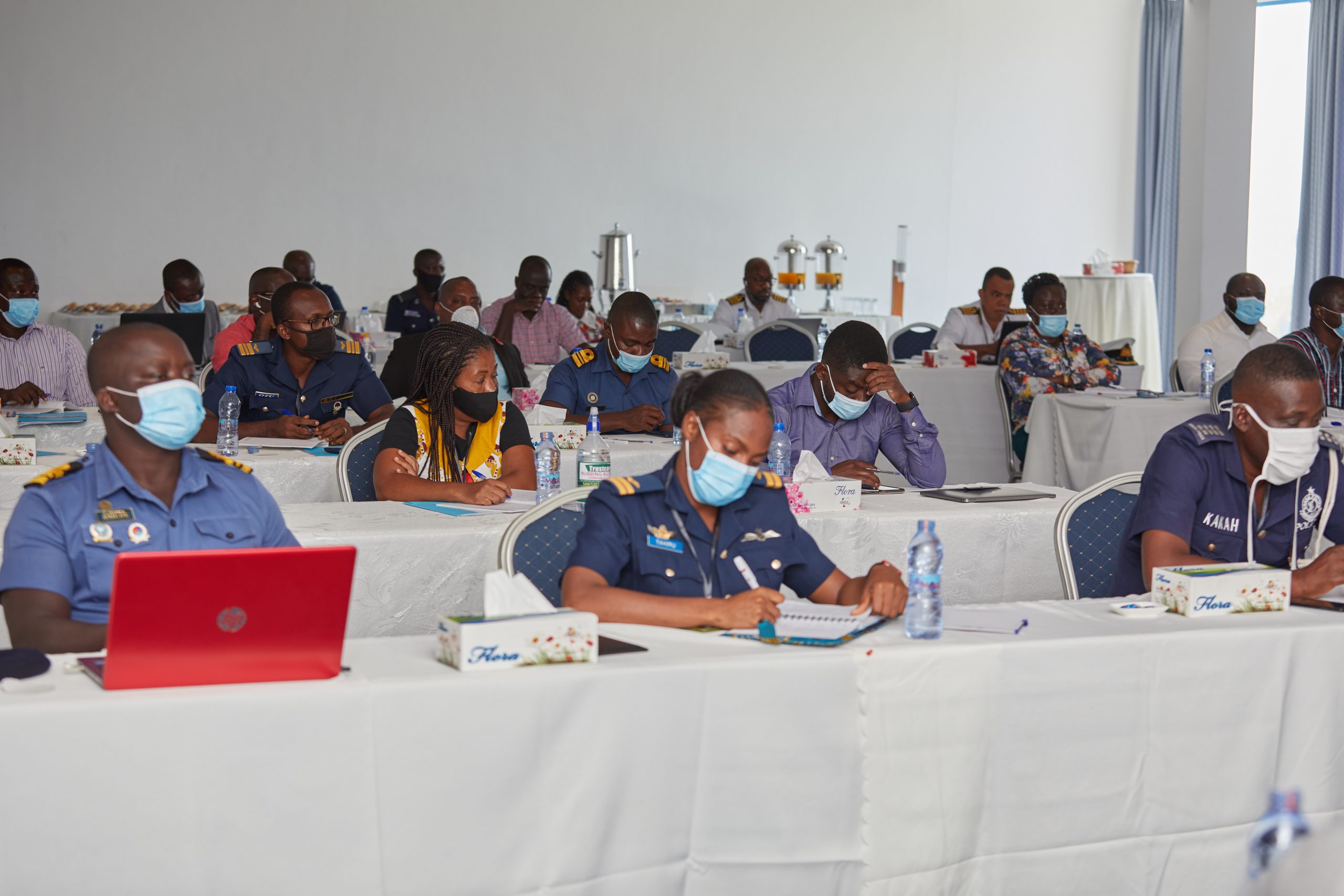 These modules were derived from findings from filed research and therefore addresses contemporary maritime security needs. Participants consisted of 22 males and 4 females from 16 maritime institutions including the Navy, Air Force, Ghana Ports and Harbors Authority, Marine Police, Customs, Immigration, Civil Society and Inshore Fisheries Association of Ghana among others. Facilitators for the course included academics and practitioners with expertise in maritime security and both serving and retired navy personnel.
These modules were derived from findings from filed research and therefore addresses contemporary maritime security needs. Participants consisted of 22 males and 4 females from 16 maritime institutions including the Navy, Air Force, Ghana Ports and Harbors Authority, Marine Police, Customs, Immigration, Civil Society and Inshore Fisheries Association of Ghana among others. Facilitators for the course included academics and practitioners with expertise in maritime security and both serving and retired navy personnel.
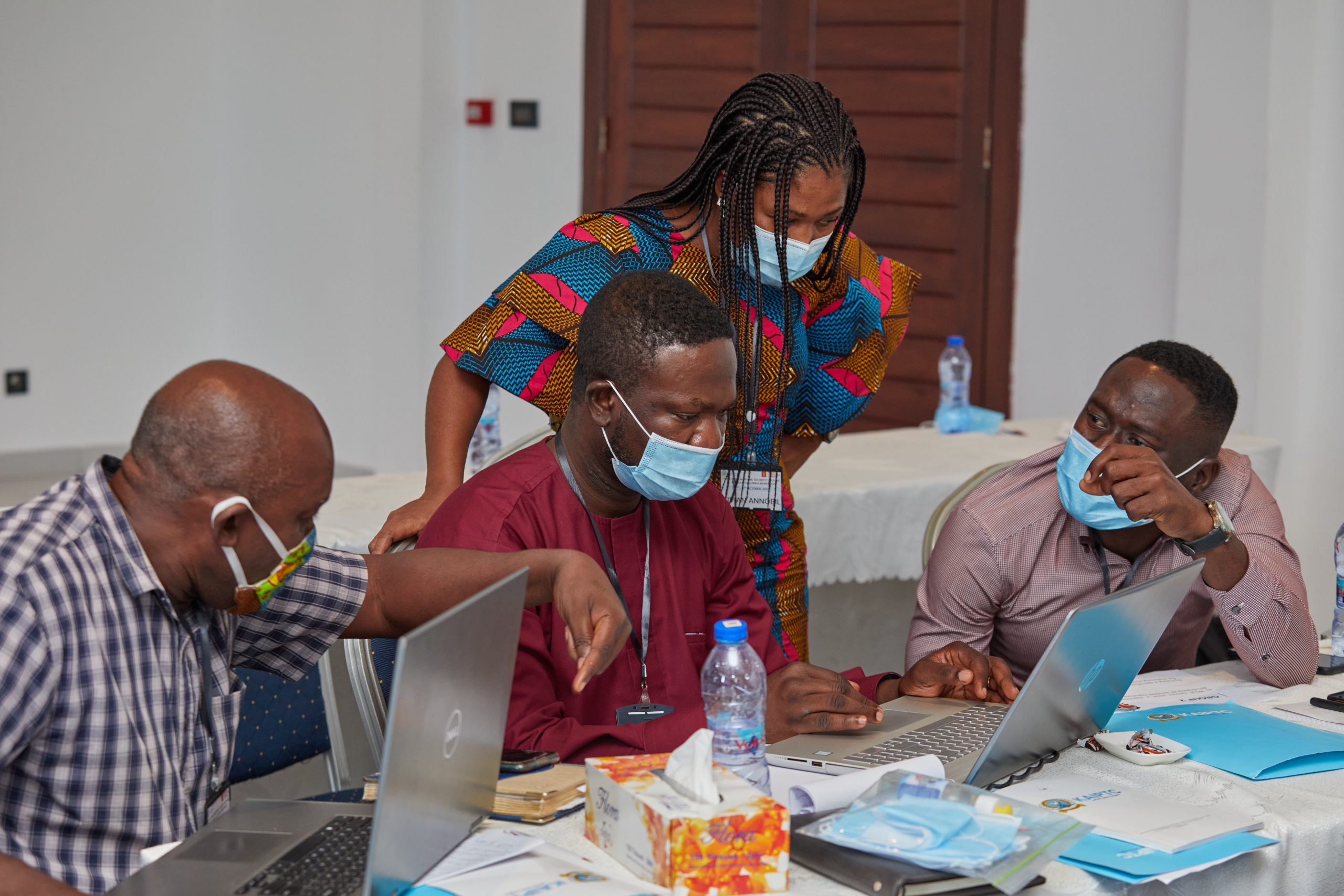 Brainstorming and group work sessions allowed participants to have a deepened understanding and appreciation of maritime security issues in the Gulf of Guinea. Interactive sessions on the challenges and opportunities in Ghana’s maritime security efforts among formal and informal maritime security players were also organised. This was spearheaded by representatives/participants from Maersk Ghana, Ghana Maritime Authority, Ghana Navy, Inshore Fisheries Association of Ghana and Friends of the Nation, a non-governmental organization.
Brainstorming and group work sessions allowed participants to have a deepened understanding and appreciation of maritime security issues in the Gulf of Guinea. Interactive sessions on the challenges and opportunities in Ghana’s maritime security efforts among formal and informal maritime security players were also organised. This was spearheaded by representatives/participants from Maersk Ghana, Ghana Maritime Authority, Ghana Navy, Inshore Fisheries Association of Ghana and Friends of the Nation, a non-governmental organization.
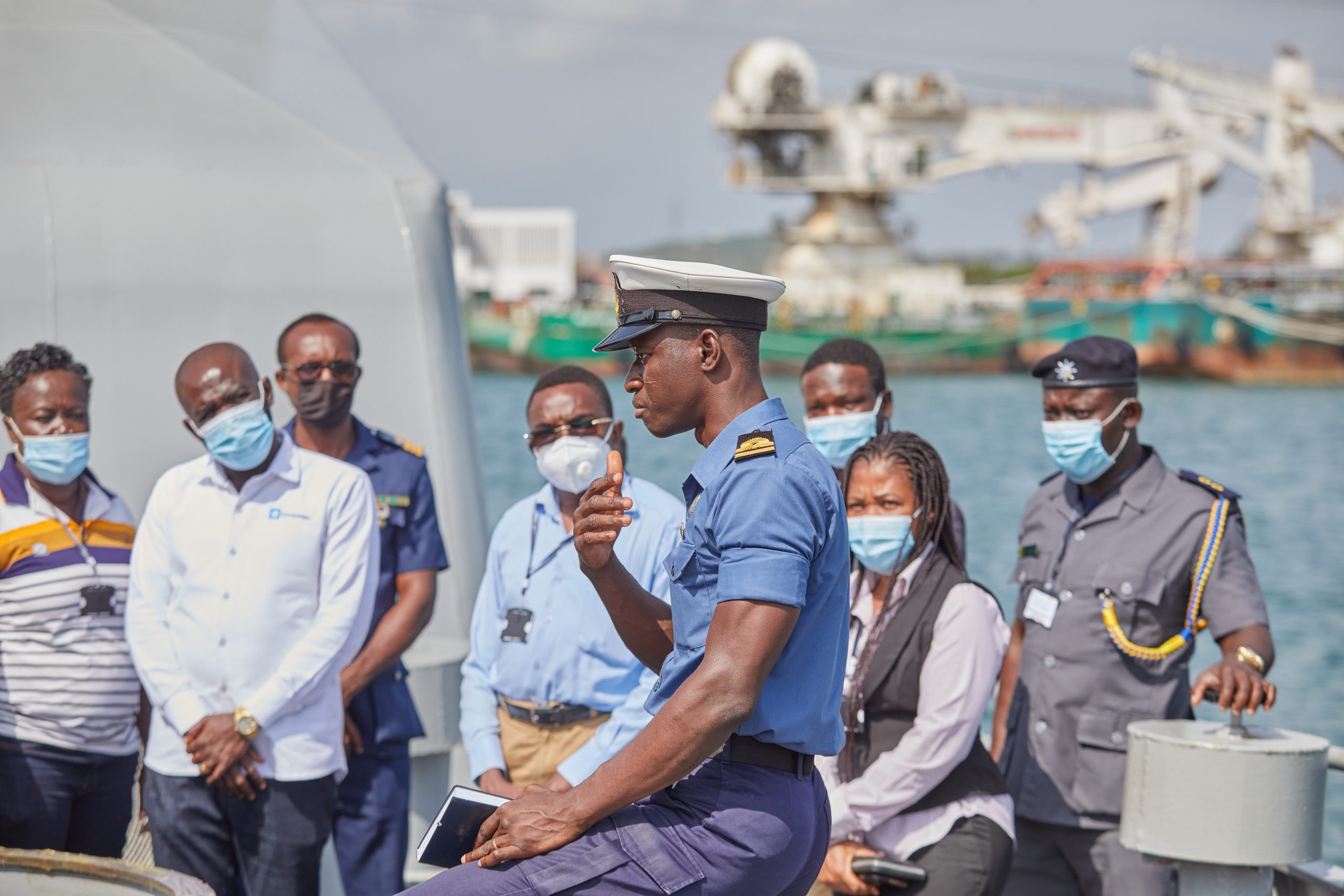
The Pilot Course on Developing Maritime Security Culture in the GoG was not only theory/classroom based, but, had a practical aspect where participants visited the Maritime Operation Centre of the Western Naval Command. The purpose of this visit was for participants to experience how Ghana’s maritime space is being monitored. Participants were taken through the surveillance capacities of the Centre’s equipment and how they support the effective monitoring and detection of illegal maritime activities in Ghana’s waters, especially in the Western enclave. The participants also undertook a sea trip which was repeated during the tour of the Takoradi harbor the following day.
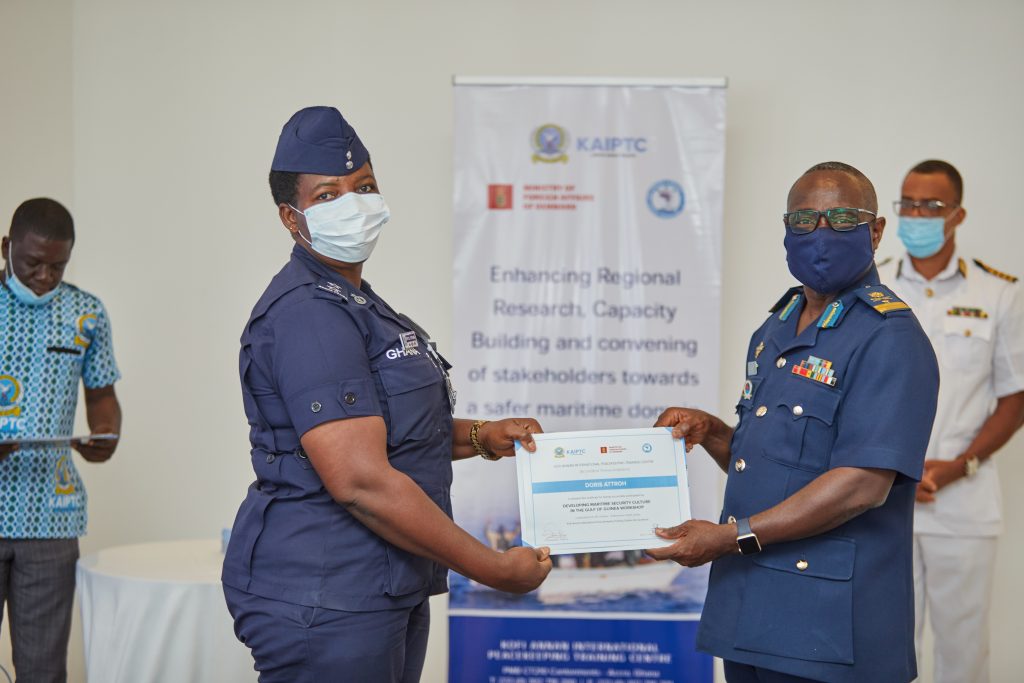
At the end of the two-week educative course, participants received certificates of participation from Air Commodore Arko-Dadzie, the Deputy Commandant of the KAIPTC, who welcomed the participants to the KAIPTC alumini fratenity. He further urged all participants to
use the knowledge gained from the course to support and initiate actions that will promote security in Ghana’s waters and the Gulf of Guinea at large.
Air Commodore Arko-Dadzie, Closing Remarks.
The knowledge and experience that l have gotten from this training will go a long way to improve my work as the Regional Director of the Economic and Organised Crime Office. It will enable me to better appreciate my role in the battle against maritime insecurity situations in the region and by extension Ghana. (Reflections from a participant).

